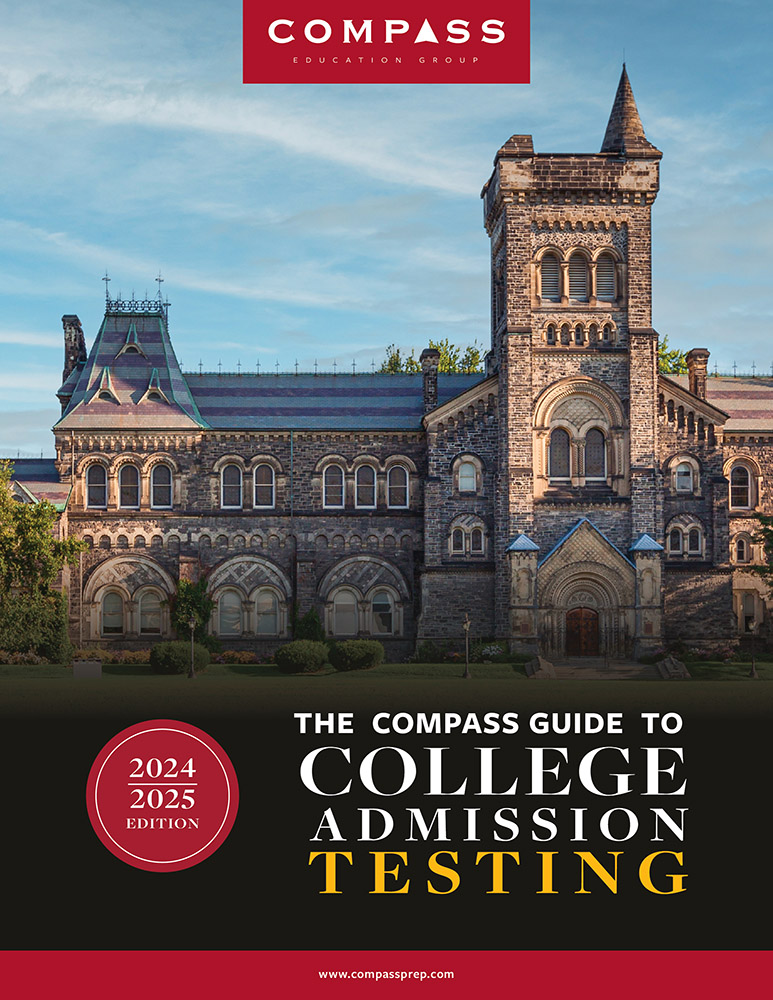
For many high school students, the ubiquity of flexible testing policies makes applying to college simpler. And, in some ways harder.
Until recently, taking the SAT or ACT was something college-bound students generally considered obligatory, knowing that most higher ed institutions would require a score from one of the two acceptable college admissions standardized exams.
Not enjoyable, but also non-negotiable. The terms — if not the tests themselves — were simple. But as the decision whether to have scores considered or not has shifted largely to applicants, it is hard to know what to do with that theoretical advantage.
Class of 2021: Fewer Testing Opportunities Meant Fewer Submitted Scores
The pandemic upended testing policy across the entire landscape of college admission. In just a few weeks in the spring of 2020, over 95% of selective four-year colleges and universities removed testing requirements, at least temporarily.
Pre-pandemic testing policy breakdown for the 400+ schools Compass tracks:

Current testing policy breakdown for the 400+ schools Compass tracks:

And as test site cancellations continued through the fall, those allowances were not merely freeing, they proved necessary. The option to apply without scores was not so much a choice in many cases, but rather a form of insurance.
Hundreds of thousands of students reached their senior year last fall without a chance to fulfill their testing plans. But thanks to the collective foresight of most colleges and universities, class of 2021 students did not find their possibilities much constrained by not submitting test scores; the absence of scores would not be a conspicuous omission in the midst of a pandemic. ACT/SAT tests taken nationally were down about 40% in 2020, and this was reflected in the percentage of applications submitted without scores. To be sure, colleges are reading a lot of applications without test scores this year. Tens of thousands of students will enroll at selective colleges this fall without having produced (or revealed) an SAT or ACT score.
Class of 2022: Testing Will Rebound, And A Score Can Be A Plus
For the class of 2021, most colleges are appropriately assuming that an applicant with no test scores did not have safe, readily available opportunities to test before their application was due. Whereas in prior years at test-optional colleges there may have been speculation that uncompetitive scores were being concealed, the class of 2021 will get more of the benefit of the doubt.
However, after testing opportunities open up again, many of the more selective colleges may expect – and will receive – scores from most applicants. Compass is optimistic that testing conditions will gradually improve this year and we believe summer and fall dates will be available in most regions of the country.
We have not seen a reduced interest in testing by students planning to apply to competitive colleges. Instead of focusing on what they can forgo, these students are considering what others with similar opportunities are apt to present as strengths. Like all discretionary qualities volunteered in an application, scores may remain a valuable piece of the holistic review process at many schools, especially those where demand for admission drastically outstrips supply.
And yet, students who are disadvantaged or discouraged by testing will have more possibilities than ever before, as the option to withhold scores will remain common for the class of 2022 and beyond. In fact, many highly selective schools such as Amherst, Boston College, Colgate, Columbia, Cornell, Harvard, UPenn, Rice, UVA, and Williams have recently extended their temporary policies beyond this year; most others are expected to follow suit by spring.
As these policy extensions are announced, however, reflect on the wording of them for additional insight into the school’s motive and attitude toward testing. Statements recently released by a number of popular schools like the ones listed above contain notably consistent themes, such as:
- The decision to continue suspending the testing requirement is due to the pandemic;
- The suspension is — for now — temporary;
- Those who are able to attain ACT/SAT scores are welcome to submit them;
- Those who have test scores from other standardized exams are welcome to submit them;
- This policy has contributed to a significant increase in applications.
There is a mistaken tendency to treat all colleges the same. It’s easy to think that general statements about how “colleges act” hold true everywhere when of course they do not. To learn more about how to parse testing policies and grasp the relative importance of testing by college, click here.
A Sensible Testing Plan
A good testing strategy begins with a proper frame of mind. Focusing on having the strongest possible second semester of junior year is an excellent start. Assume opportunities to take the ACT or SAT will arise, be prepared when they do, but be patient and expect some canceled or postponed events, especially in the near term. Plan to use the summer and/or early fall dates to complete your testing goals. The recent elimination of Subject Tests (typically taken in May or June) has made it easier to establish an ACT or SAT testing schedule.
Common timelines for our class of 2022 students:
| ACT | SAT |
|---|---|
| 1-on-1 weekly tutoring (Feb - May) | 1-on-1 weekly tutoring (Feb - May) |
| Monthly full-length proctored practice tests (Feb - May) | Monthly full-length proctored practice tests (Feb - May) |
| 1st official ACT in June or July | 1st official SAT in May or June |
| Refresher prep / practice tests | Refresher prep / practice tests |
| 2nd official ACT in July, September, or October | 2nd official SAT in August or October |
Keeping Your Options Open In A Competitive Context
All things being equal, applicants who have scores to report retain a potential advantage over those who sit out testing from the start. Having the option to send scores—to all colleges, to some colleges, or to no colleges—is when a student’s decision-making opportunity will be optimized. To assist with those judgment calls, Compass closely tracks the testing policies and competitive profiles of 400+ popular colleges. These institutions attract a national applicant pool and are moderately to highly selective.
As we continue to carefully monitor trends, we will report out on student behavior and the impact of flexible testing policies. We’ve already seen that a relaxed testing policy does not make a highly selective school less competitive; in fact it can boost a college’s desirability, increasing the imbalance of available spots and demand for them.
Colleges that were already exceedingly popular reached record high levels of interest in 2020, especially in their early application rounds, resulting in record low early admit rates. Even more sobering have been figures like those reported by UPenn, which had an early admit rate among score submitters that was nearly twice as high (18.4%) as that of those who did not submit scores (9.5%). While such a statistic causes consternation, it is an extreme case that should not be inferred about the broader field. What can be assumed is that those who chose to submit scores, on average, had some of the strongest overall applications. So while the presence of scores may have correlated to higher admission rates at some schools, it can’t be said that sending scores necessarily led to better outcomes.
In the coming years, we will see if applicant and admission profiles at competitive colleges alter and what role testing policies have in that change. Visit our Resource Center for the most current compilation of this data, and reach out to a Compass Director to discuss how these variables shape your testing plans.

